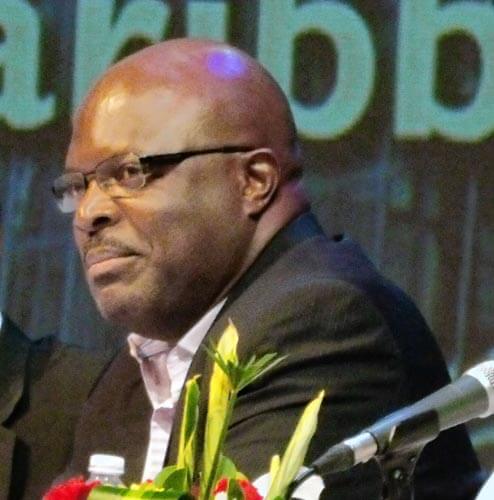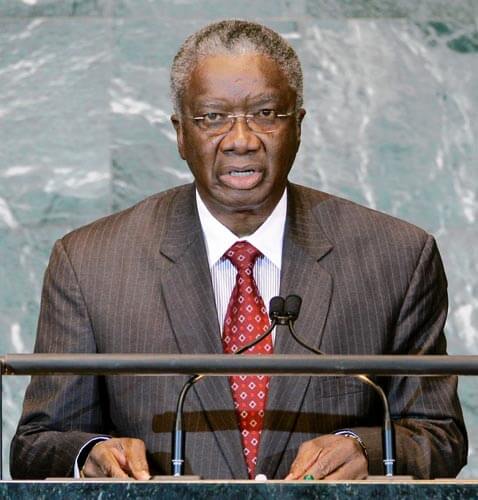Two Barbados teenagers, facing charges of filming and distributing indecent images of a boy and girl having sex in a classroom, have been placed on US$5,000 bail each in an issue that may implicate others – including a leading media house.
The Wednesday, Nov. 13, court action against the 15- and 16-year-old boys was the latest development after a newspaper report of students having sex in a Barbados classroom erupted into a hot controversy, with government considering legal action against the publisher.
The Nation newspaper published in its Saturday Sun edition of Oct. 26, under the caption ‘Sex Scene’, a report with photograph of a boy and girl engaged in a sex act, believed to have been videotaped on a cell phone by other students and put on the Internet.
The ensuing furor continues to engulf the island, with Prime Minister Freundel Stuart leading off comments of disapproval, and residents voicing their opinions in the print and electronic media ranging from condemnation of the newspaper for the report and calls for stricter monitoring in schools and a ban on cell phones in classrooms, to hailing it as an example of what happens in schools, with the contention that the education system has lost its way.
Almost immediately following the article’s publication, Stuart bemoaned what he saw as too much negativity in the press, and last week his Attorney General, Adriel Brathwaite, told parliament he will be exploring the possibility of prosecuting the newspaper.
“There is a piece of legislation called Protection of Children’s Act, Chapter 146A of this country. And I hope that whoever has the power to examine that particular expose in that newspaper can do that and look to see whether this act has been infringed; and if it has been, to ensure that what is required to be done is done, because we must protect our children,” Brathwaite said.
The Royal Barbados Police Force last weekend responded to the statement by Brathwaite – their de facto boss – by announcing an investigation to explore whether there were criminal acts had started.
Acting Assistant Commissioner of Police, Lionel Thompson, stated in a release to the media, “Since the article and photograph … there has been much debate as to whether there have been breaches of the criminal law and the apposite role of the Royal Barbados Police Force in the circumstances in which this matter was publicised.”
The police action has so far resulted charges for the teenagers, who in addition to bail are on a dusk to dawn curfew. The 16-year-old faces a further charge of drug possession because police found marijuana plants, allegedly belonging to him, when they visited his home.
Police said the probe into who else is culpable for illegal actions continues, which means that the Nation newspaper has not been cleared and may still be charged.
Some persons thought the newspaper article’s description was too graphic, taking offence with use of terms such as. “… as he thrusts in and out behind her.” But they also found objection in publication of the photograph because, with the exception of blurred faces, newspaper readers could have a clear view of two children in school uniforms in a sex act, with the girl’s skirt pulled up exposing a buttock cheek.
The newspaper subsequently defended itself saying no sexual organs were shown, and the school was not identified.
But the Association of Caribbean MediaWorkers’ (ACM) newly elected president, Clive Bacchus, stated Sunday, “I don’t think use of the photograph is in keeping with the best journalistic practice.”
ACM is an umbrella organisation for national media associations across the Caribbean and individual journalists, and its stamp of disapproval should resonate among practitioners in these territories.
Bacchus added, “A key journalistic question that always needs to be asked when using potentially contentious photographs is ‘what does it add to the story’?” He further stated, “The journalistic issue regarding the value of the photograph could have been addressed using existing media standards and a sense of good taste.”
The comment by Bacchus comes against the backdrop of the ACM adopting a resolution on media self-regulation at its 7th Biennial General Assembly in Trinidad and Tobago on Oct. 27 – one day following the newspaper’s contentious publication.
The resolution states in part, “good journalistic standards are based on professional ethical principles, to which media practitioners must adhere.”
In an editorial comment, the Nation newspaper showed a touch of remorse. “On reflection we do accept that some detail in the article could have been less descriptive,” it stated, but continued, “We acknowledge that this publication offended some, and we knew it would.”
In that statement, the paper sought to move discussion to what is happening in Barbados’ schools, “We hope now the debate will shift from the question of whether we should have published the report to the more important issues of supervision of our children during school hours, [and] the widespread use of cell phones in schools despite rules against…”
Only time will tell whether the newspaper’s attempt to move the issue to a debate on the higher ground of discipline in schools will be successful, or if it gets slapped with charges from the public prosecutor’s office.
























